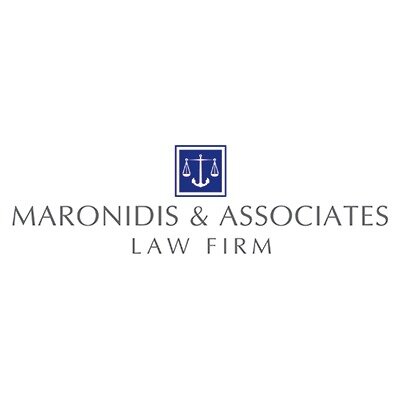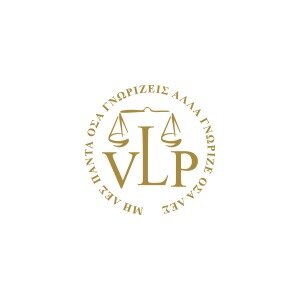Best Faith-Based Law Lawyers in Thessaloniki
Share your needs with us, get contacted by law firms.
Free. Takes 2 min.
List of the best lawyers in Thessaloniki, Greece
About Faith-Based Law in Thessaloniki, Greece
Faith-Based Law in Thessaloniki, Greece, includes the legal principles and practices derived from religious traditions that impact legislation and societal norms. This field of law is heavily influenced by Greece's historical connection with the Eastern Orthodox Church. It might impact matters such as family law, religious freedoms, and the operation of religious institutions. It's important for individuals seeking guidance to understand the intersection of religious doctrine and Greek national law, which tends to be complex and deeply rooted in both tradition and legal statutes.
Why You May Need a Lawyer
Faith-Based Law can intersect with everyday life in various ways, creating a need for legal advice or representation. Common situations include issues concerning marriage and divorce where religious doctrines might conflict with civil law, inheritance disputes, or conflicts regarding the organizational governance of religious institutions. Additionally, individuals or organizations might seek legal support to navigate their rights to religious freedom and expression, especially in employment or education contexts, where secular and religious principles might conflict.
Local Laws Overview
In Thessaloniki, Greece, Faith-Based Law must be understood within the broader context of Greek law and the influence of the Eastern Orthodox Church. The Greek Constitution recognizes the Orthodox Church as a dominant religion, which affects various laws, especially in family-related matters. For instance, religious wedding ceremonies have specific legal recognitions, and Orthodox beliefs can shape family laws, including those around baptism and confirmation of citizenship. Understanding these nuances is crucial to addressing legal issues appropriately.
Frequently Asked Questions
What is the role of the Orthodox Church in Greek law?
The Orthodox Church is recognized as a prevailing religion, influencing various aspects of Greek law, including family law and religious freedoms.
Are religious marriages recognized by Greek law?
Yes, religious marriages conducted by the Orthodox Church are legally recognized, although a civil ceremony is also permitted and recognized.
How can Faith-Based Law affect inheritance issues?
Issues may arise if religious doctrines conflict with civil inheritance laws, requiring careful legal interpretation and potential legal intervention.
What are my religious rights in public schools?
The law protects the right to religious education, allowing parents to opt-out children from religious classes in public schools.
Do religious laws override civil laws in Thessaloniki?
Generally, civil laws take precedence, but religious laws may influence personal matters like family law, requiring a nuanced understanding.
What support is available for resolving church governance issues?
Legal professionals experienced in both ecclesiastical and secular laws can provide assistance, navigating governance issues within religious entities.
Is it necessary to have a lawyer for a divorce that involves religious aspects?
Yes, especially if religious law impacts the proceedings, such as agreements regarding marriage annulment or child custody influenced by religious practices.
Can businesses request religious accommodations in Thessaloniki?
Yes, businesses can seek accommodations, but they must comply with national labor and employment laws and consider potential conflicts with religious doctrines.
How does Greek law view religious holidays in the workplace?
Employees have the right to observe religious holidays, but workplace policies must balance religious freedom with operational needs, requiring legal interpretations at times.
What is the procedure to establish a religious entity legally?
Establishing a religious entity involves legal procedures including registration and compliance with Greek laws, with the Orthodox Church's roles and regulations being key components.
Additional Resources
Individuals seeking legal advice on Faith-Based Law can refer to the following resources:
- The Greek Ministry of Education and Religious Affairs
- The Holy Synod of the Orthodox Church of Greece
- Local Bar Associations in Thessaloniki
- Faith-Based Non-Governmental Organizations
- Legal Aid Clinics at local universities
Next Steps
If you require legal assistance in Faith-Based Law, consider taking the following steps:
- Identify Your Legal Needs: Clearly determine the specific issue you need help with, whether family law, religious rights, or organizational governance.
- Research Qualified Lawyers: Look for legal practitioners in Thessaloniki with expertise in both Greek civil law and Faith-Based Law.
- Consulting with Experts: Schedule consultations with potential lawyers to discuss your case and understand your legal options.
- Review Credentials and Experience: Ensure your chosen lawyer has a proven track record in handling similar cases effectively.
- Stay Informed: Keep abreast of any changes or developments in relevant laws that might affect your situation.
Lawzana helps you find the best lawyers and law firms in Thessaloniki through a curated and pre-screened list of qualified legal professionals. Our platform offers rankings and detailed profiles of attorneys and law firms, allowing you to compare based on practice areas, including Faith-Based Law, experience, and client feedback.
Each profile includes a description of the firm's areas of practice, client reviews, team members and partners, year of establishment, spoken languages, office locations, contact information, social media presence, and any published articles or resources. Most firms on our platform speak English and are experienced in both local and international legal matters.
Get a quote from top-rated law firms in Thessaloniki, Greece — quickly, securely, and without unnecessary hassle.
Disclaimer:
The information provided on this page is for general informational purposes only and does not constitute legal advice. While we strive to ensure the accuracy and relevance of the content, legal information may change over time, and interpretations of the law can vary. You should always consult with a qualified legal professional for advice specific to your situation.
We disclaim all liability for actions taken or not taken based on the content of this page. If you believe any information is incorrect or outdated, please contact us, and we will review and update it where appropriate.











